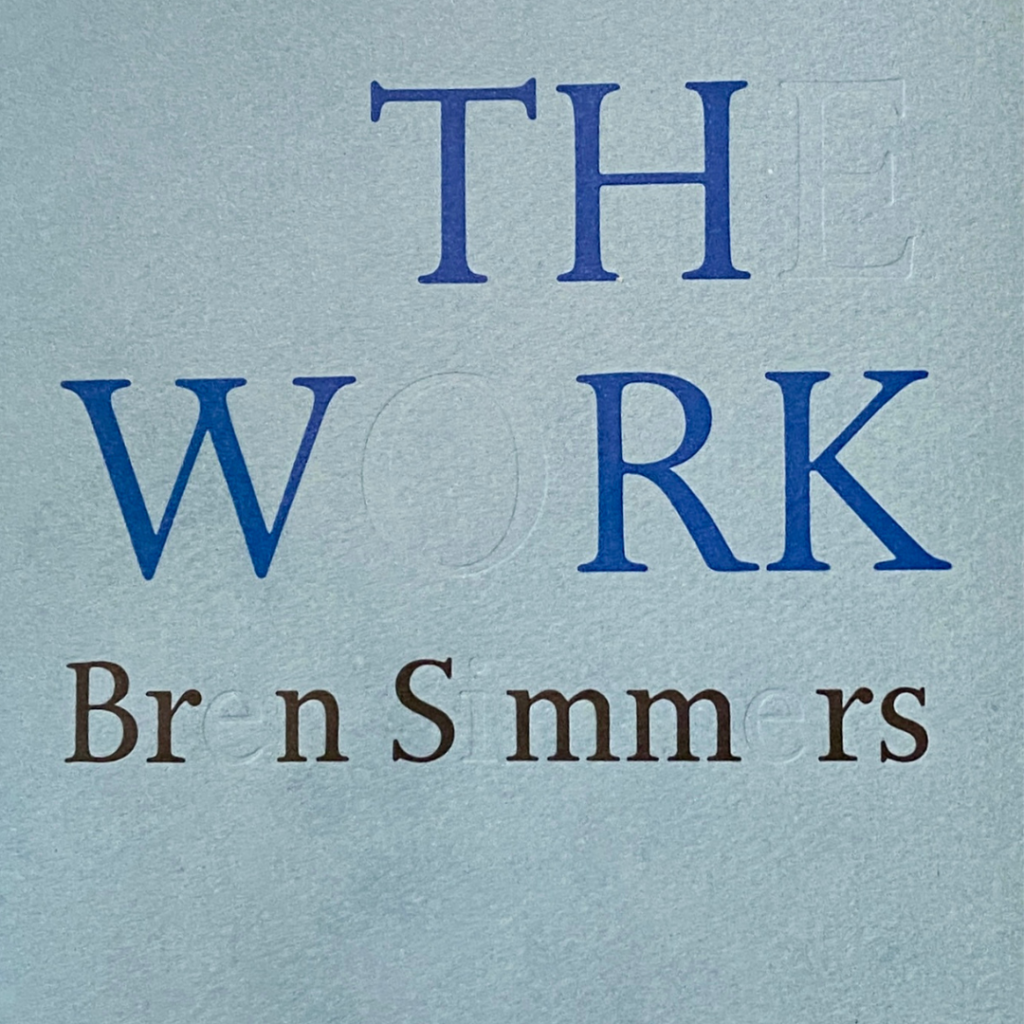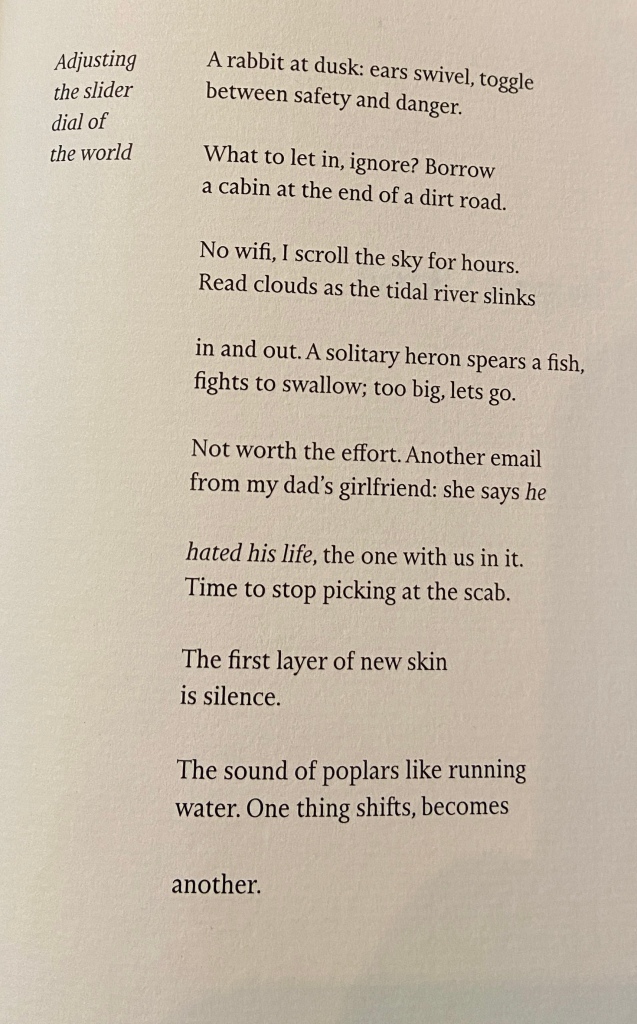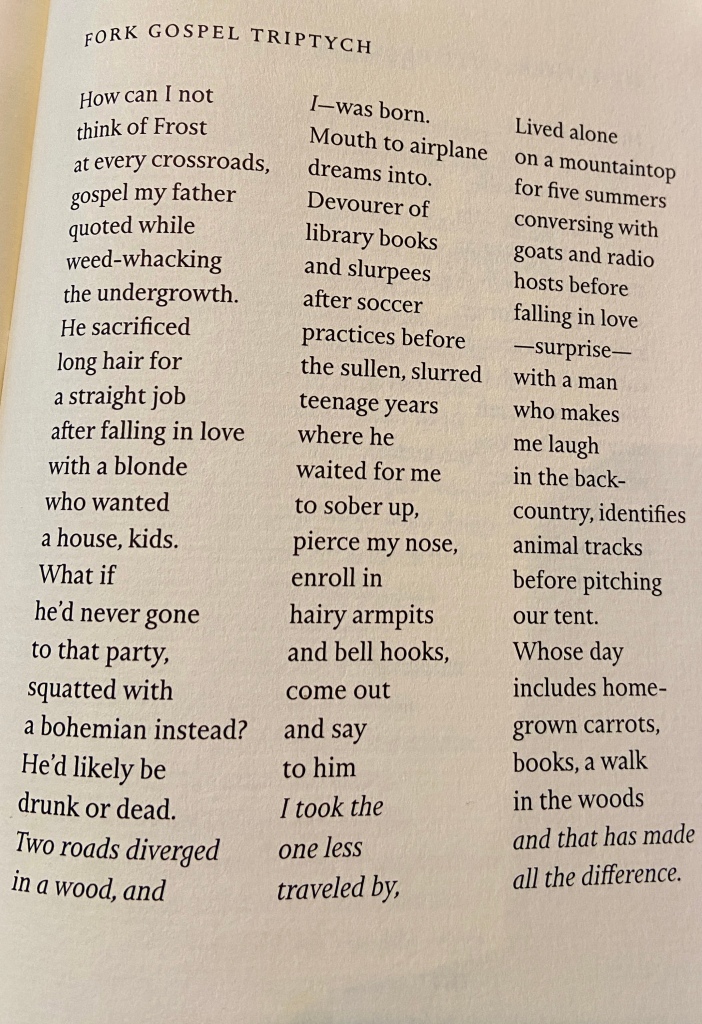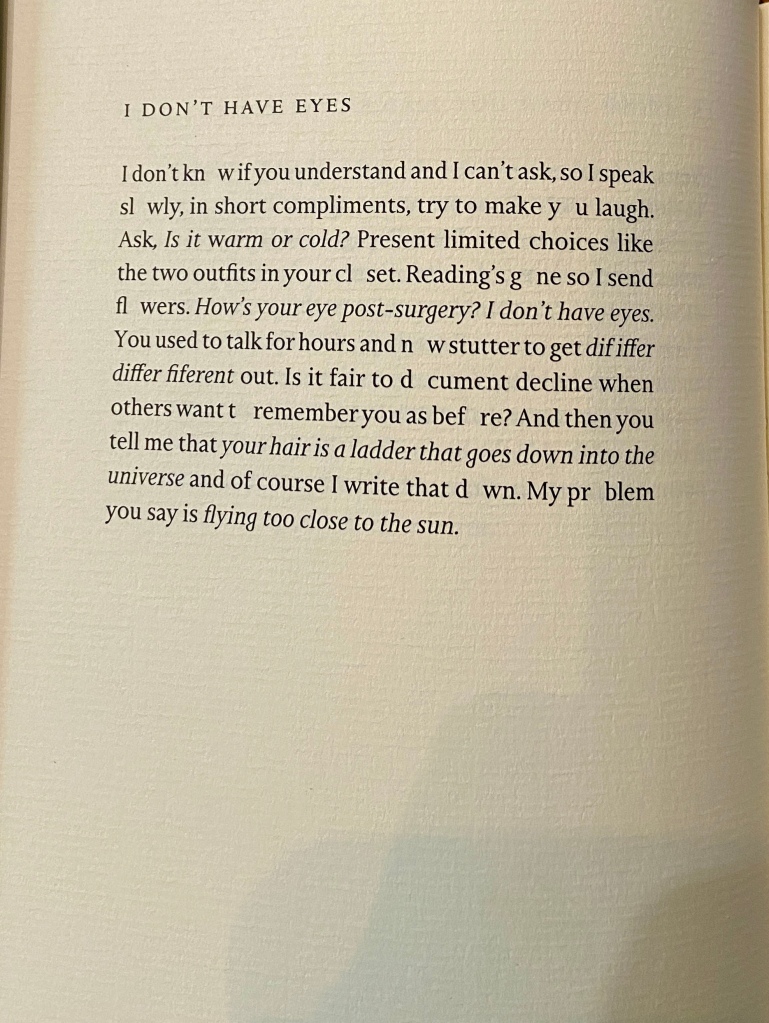by Chris Banks

“Deep listening looks like doing nothing”, Bren Simmers writes in her long sequence “Overheard” which begins The Work, a poetry collection out this Spring with Gaspereau Press. I like the idea of ‘deep listening’, or poetic meditation, to describe Simmers’s poetry (as I myself wrote three deeply meditative lyric poetry books, so I have a tremendous respect for this poetic school, and it’s mudlarking riches).
The meditative mode causes a poet to “double-down” on stillness, on silence, and, perhaps most of all, on waiting. In an essay called “Lyric Yoga”, Stanley Plumly has called stillness ”a way to prepare to speak” and ”Writing [is] the restlessness answering the stillness.” I really enjoyed Bren Simmers’s collection precisely because it tries to find a form for the poet’s grief and love through waiting, and then finding.
This is a collection that employs the rhythmic prose sentence as its basic measurement; however, the forms containing it change throughout the collection. Even in the opening sequence “Overheard” we find the poet placing titles to the left, and then poems to the right in single long stanzas, or four stanzas, or in the case of the last poem “Adjusting the slider dial of the world” in couplets:

“The first layer of new skin / is silence” resonates with meaning after the death of the poet’s father. Here, Simmers is giving witness to the fact that everything has changed now that one’s father is no longer in the world, and that silence falls loudly all around her. But that silence also leads to writing, and is a kind of rebirth for the poet. I think this is how we read the ending of the poem: “The sounds of poplars like running / water. One thing shifts, becomes / another.”
Out of pain, praise can come the poem seems to say. Simply by listening, or sitting with grief, it is possible to find new connections, new insights–”the beauty of innuendos” as Stevens wrote – through meditation, and letting the writing come to us.
Sometimes, the wisdom of the poems feel a little ‘folksy’, but then the innovative poetic forms Simmers uses seem to compensate for that as well and, in fact, in the case of her poem Folk Gospel Triptych, Simmers learns in hard on that folk wisdom, as if saying “trust my voice” even if how the poem is “presented” on the page feels surprising and modernistic:

I wasn’t sure , at first, whether I liked this poem, but then I realized the loose narrative exposition very carefully navigates the triptych form Simmers has carefully laid out on the page. I also like how the poem swivels from a discussion of sullen teen years that were difficult for both father and poet, to a focus on a partner who grows carrots, and walks in woods, to then an allusion to Frost’s famous two roads which threads the entire poem – and that has made all the difference.
I did not like all the poems, but Simmers’s strength is the confidence of her voice, the authority a poet is rewarded with by waiting and by witnessing, after age and hardships, coupled with the myriad poetic forms she creates to contain the unbidden words that bubble forth out of the mind’s restlessness: prose poems, tercets, quatrains, and terrific experiments with erasure (which I usually don’t like it) but I thought expertly embroidered absence into the poems.
For instance, in the section Still Mom, look at how the missing letters create a visual equivalent of the mother’s decline into dementia:

This is an incredibly moving sequence documenting a loved one’s cognitive decline, but also those moments where the person is still themselves, and yet also is about those tender dreamy moments a person afflicted with dementia can offer up like your hair is a ladder that goes down into the universe. I would write that down too! The last poem in the sequence is almost unreadable because so many letters have been erased ‘to mirror’ or to represent gaps in memory so the reader has to stitch or “mend [the] h les” themselves.
Overall, I really enjoyed Bren Simmers’s The Work. There are so many remarkable lines like “the world unfurling like a great pause” or “Greenland, / a cube melting / in a whiskey glass.” These are inspired phrases that waiting and stillness delivers: what meditation and restlessness causes the mind to thread together.
I think the topography of the collection’s cover with the ‘E’ and ‘O’ missing in the title offers a clue on how to read this collection, as this book is all about absence. And what to do with the stillness, the silence that surrounds us, after our loved ones are gone. This book says love is work. Embodying the absence of those passing from our lives is work. The mind and body grow restless in that silence, start to look for new ways to inhabit human experience which is how Bren Simmers can write the final lines of the collection: “Breathing in and out. / One day we’re here and the next, clouds.
Please go pick up a copy of Bren Simmers’s poetry collection The Work out with Gaspereau Press at your local bookstore!